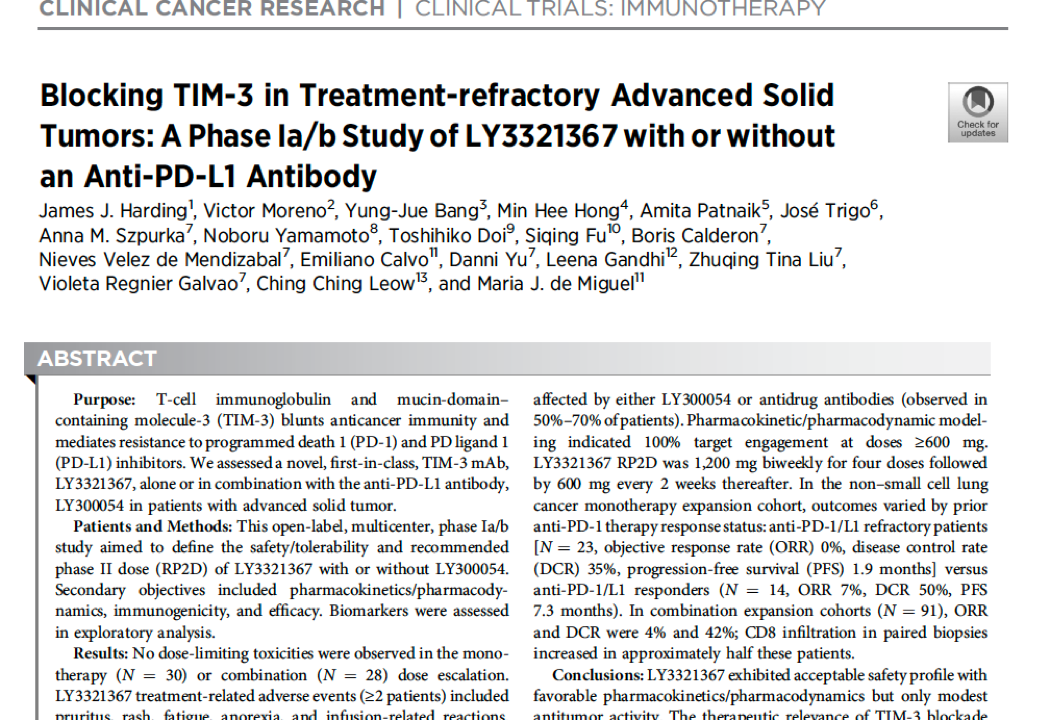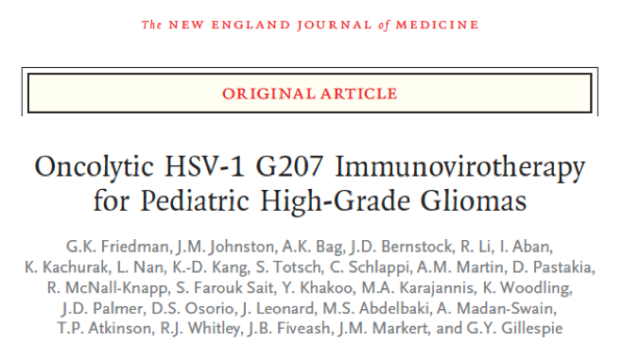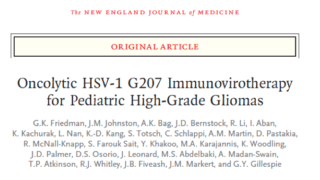Clin Cancer Res. 2021 Apr 15;27(8):2168-2178. NCT03099109
https://pubmed.ncbi.nlm.nih.gov/33514524/
Significance of findings: medium
This phase 1 study of TIM antibody (LY3321367) with or without PD-L1 antibody (LY300054) was conducted in the US, Korea, Spain, Japan, etc. The standard 3+3 dose-escalation design was employed for the dose-escalation part of this study and the exploratory expansion part was conducted on several cancer types including NSCLC etc. The safety profiles of both regimens seem to be tolerable, however, anti-tumor activity was not as clear as expected.
As expected, novel adverse events were not shown in this report. The high frequency of ADA was impressive, however, the authors claimed that the ADA does not influence the safety profiles of this new drug. The results of the main objectives are described below.
Dose escalation: monotherapy (N=30), combination (N=28)
No dose-limiting toxicities were observed in the monotherapy (N=30) or combination (N=28) dose escalation
Eight deaths occurred on study due to AE, which were unrelated to study treatment and related to underlying cancer
two ≥grade 3 TRAEs (dyspnea and lipase increase) were noted in 67 patients treated with monotherapy.
In this report, the antitumor activity of both regimens was shown. Considering that TIM-3 targeted treatment has been developed in order to overcome the resistance mechanism of immune checkpoint inhibitors, it is difficult to say that both of the regimens, monotherapy and combination therapy, showed expected anti-tumor activity especially in patients with prior PD-1/PD-L1 treatment. The main efficacy results are described below.
In the monotherapy dose-escalation A cohorts, the ORR and DCR were 3.3% and 40%, respectively, in 28 evaluable patients.
In the combination cohorts (C cohorts; Fig. 3; Table 3), ORR and DCR were 4.4% (gastric/GEJ cohort, 3.4%; SCCHN cohort, 14.3%; other cohorts, 0%) and 41.8% (gastric/GEJ cohort, 20.7%; NSCLC cohort, 66.7%; UCcohort, 44.4%;HCC cohort, 56.3%; SCCHN cohort, 35.7%; SCLC cohort, 0%) respectively, in 91 evaluable patients.Four patients had confirmed PR (1 GEJ, 1 urothelial carcinoma, and 2 SCCHN)
Several promising agents are being developed for overcoming the drug resistance of immune checkpoint inhibitors; TIGIT, LAG3, OX40, 4-1BB etc. Among these agents, anti-TIM-3 antibody are being developed by several drug industries as below.
Although many antibodies and bispecific antibodies including LY3321367 reported in this paper have been developed combined with PD-1 or PD-L1 antibody, we have yet to see any promising data. No phase 3 trials have been conducted (on 16 May 2021). Antitumor activity of blocking TIM-3 signals has to be investigated in further clinical trials.


